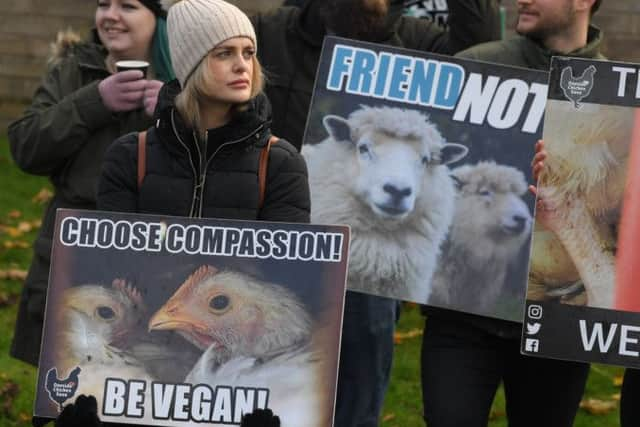Vegan arguments against eating meat are fundamentally flawed: Yorkshire Post Letters
I write in support of the letter from Paul Morley (The Yorkshire Post, January 7). He is quite right – evolution has made us omnivores. However, during this process we have lost (never to be regained) the ability to make certain amino acids that are essential for our growth and health.
We can now only obtain these amino acids from eating animal products, therefore, if vegans are to survive they have to cheat. I know many take tablets – this is still cheating.
Advertisement
Hide AdAdvertisement
Hide AdOur ability to digest vegetable matter is very poor. We would certainly produce more greenhouse gas than cattle so the argument against eating meat is fundamentally flawed.


However, the biggest argument against the so-called rise in CO2 production is also fundamentally flawed. Plants take up CO2 for their growth in a process called photosynthesis, a by-product of this process is oxygen which is essential for life. Without CO2 there would not be life as we know it.
From: John D Rayner, North Ferriby.
While I agree entirely with the overall conclusion of Paul Morley that veganism for all is unsustainable, I must take issue with some details in his argument concerning animal cruelty, human health, and environmental impacts.
On animal cruelty: firstly death and predation are quite natural, and in most developed countries there are strict controls for the humane slaughter of livestock. If livestock farming were to cease, this would not happen overnight but in a phased run-down, so there need be no mass cull as existing livestock would simply not be replaced.


Advertisement
Hide AdAdvertisement
Hide AdHence there would simply not be a future livestock population to compete for fodder crop space, but since some landscapes are not suitable for cultivation, for example upland areas, these would need alternative management to current livestock.
Furthermore, and perhaps more importantly, the loss of natural manures from livestock husbandry would, as Mr Morley notes, lead to increased use of artificial fertilisers at significant detriment to the environment. There should be stronger tie-up between livestock and arable sectors – whatever happened to mixed farming?
The major problem with human health in relation to consumption of meat is quite simply aberrant portion control in many commercial outlets and (again) particular ‘developed’ countries. Aside from the small proportion of people with allergies or other medical conditions relating to meat consumption, certain populations simply eat far too much meat, so this needs to be re-balanced through a change to societal expectations.